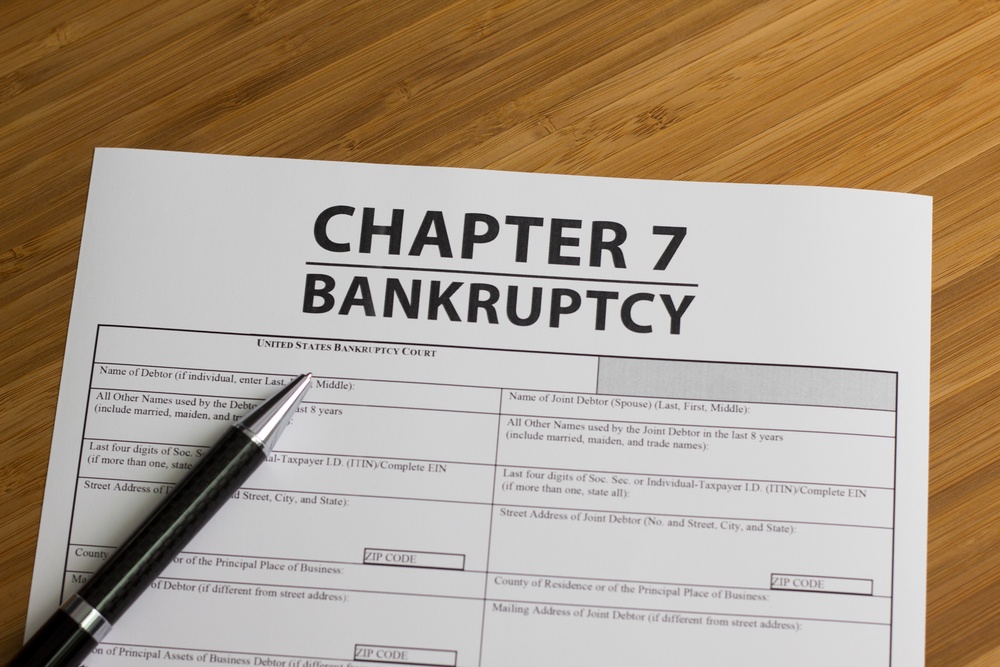
When you file for bankruptcy, you are required to get your finances in order before heading to court. Among other tasks, you are expected to be caught up with filing all of your tax returns.
Having even one return not filed could put your bankruptcy case in jeopardy. Learn how unfiled tax returns can negatively impact bankruptcy and any possible refunds you expect to receive from the IRS.
Disclosure of Tax and Income Information
Regardless of the chapter of bankruptcy you are filing, you are required by the court to fill out and submit the Disclosure of Income and Tax Information document. This piece of paper indicates to the court the state of your financial affairs. It lets the trustee and judge know exactly how much money you have earned and the worth of the assets you have had access to in recent years.
You can gather your income and tax information by collecting and submitting proof of your bank and income earning statements. However, this task can be time consuming and could give you the wrong sum. You can get a more accurate number of how much you have earned and gotten back in IRS refunds with your filed past tax returns.
Before you file for bankruptcy, you can make gathering information about your income easier by filing all of your tax returns. These returns also let the court know if the IRS owes you money, which could potentially be claimed and distributed among your creditors.
Tax Returns and Chapter 13 Bankruptcy
If you plan on filing for Chapter 13 bankruptcy, you will be required to have filed all of your tax returns for the prior four years. You have until the day before you meet with your creditors to file past due returns. You must provide the trustee assigned to your case all of the copies of the returns so he or she knows they are satisfactorily filed.
If you fail to complete this task, you risk the ire of the trustee. Your case could also be handed off to a federal bankruptcy judge, who may not be as lenient in giving you more time to get the returns filed.
Further, having your returns filed prior to taking out a Chapter 13 bankruptcy makes sense for several other reasons. It could allow you to:
- Discharge tax debts that are older than three years old
- Avoid additional interest and penalties on past due taxes
- Satisfy an IRS tax lien
- Compel the IRS to abide by a court-ordered plan dealing with past due taxes
When filing a Chapter 13 bankruptcy, you should keep copies of all of your tax returns and post-petition tax obligations on hand until the case is fully discharged.
Tax Returns and Chapter 7 Bankruptcy
If you are planning on filing a Chapter 7 bankruptcy, you have until seven days prior to meeting with your creditors to file your past due tax returns. These returns let the court discover whether or not you are owed a refund. The trustee will also determine whether or not you get to keep that money or if it should be distributed among your creditors.
Whether or not you get to keep your refund will depend on a variety of factors. Primarily, it will depend on the amount of your refund, what bankruptcy exemptions you have, and when you file your case.
The Impact of Unfiled Tax Returns on Your Bankruptcy Case
Not filing your past due tax returns prior to filing for bankruptcy can negatively impact your case. For instance, if you are filing for a Chapter 13, the court may decide that some or all of your debts cannot be paid. If you are filing for a Chapter 7, the court may not allow some or all of your debts to be discharged.
Filing your past due returns is highly recommended prior to going to bankruptcy court. You help your lawyer deal with potential obligations now instead of having them negatively impact or delay your case later.
The Impact of Anticipated Tax Refunds on Bankruptcy
By law, any tax refunds you anticipate receiving while you are filing for bankruptcy will be considered to be a part of your bankruptcy estate. In fact, almost all of the assets you own will be included in this estate and taken into consideration to determine what if any could be liquidated to pay off some or all of your debts.
In rare cases, you may qualify to have your tax refund exempted from being included in your bankruptcy estate. However, as a rule, the trustee overseeing your case has the right to claim it and distribute it among your various creditors.
Timing the Filing of Your Bankruptcy
When you want your tax refund to be exempt as part of your bankruptcy estate, you should time the filing of your case precisely. In fact, you may be wise to wait until you receive the tax refund before filing for bankruptcy. After you receive it, you should then spend it so the court cannot lay claim to and use it to pay off your creditors.
However, while you are spending it, it is important that you avoid buying another large asset that the court could include in your estate and liquidate. Instead, you should use your refund for expenses like:
- Rent
- Mortgage payments
- Food
- Gas
- Car Maintenance
- Other basic living expenses
Once the refund is spent, you can file for bankruptcy and give an honest account for how you legally and wisely used the money to support you and your household.
The filing status of your tax refunds invariably impacts the outcome of your bankruptcy case. Before you file, you are encouraged if not legally required to file all of your past due returns.
You can time the filing of your case in some instances to protect the status of an expected tax refund. However, you should consult with a tax professional to ensure the exemption of your refund as part of your bankruptcy estate or to get caught up with filing past due returns.



